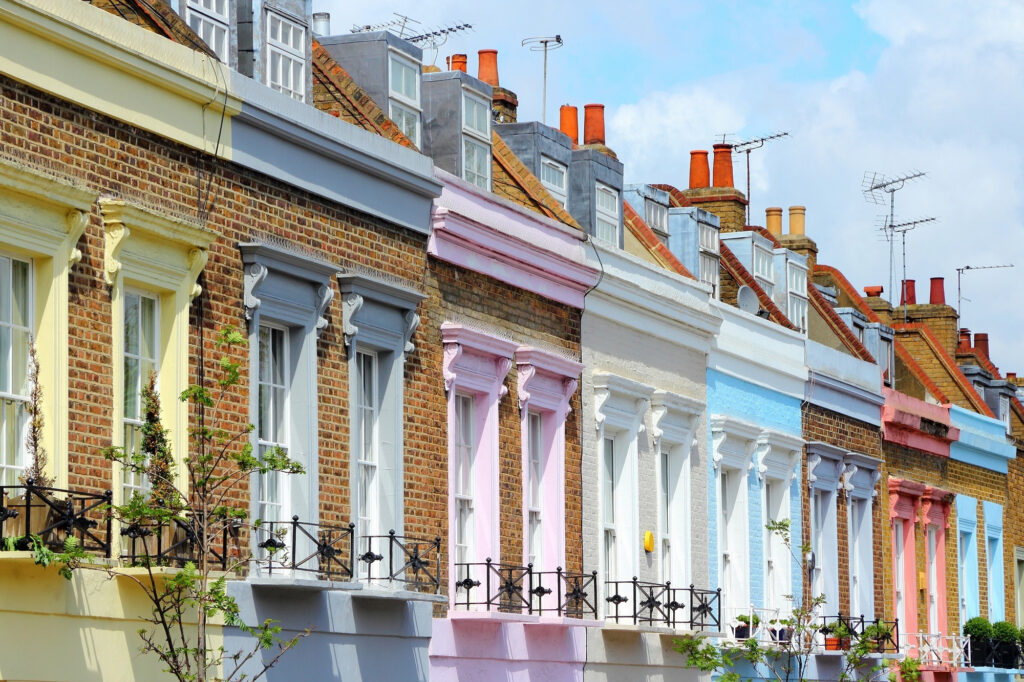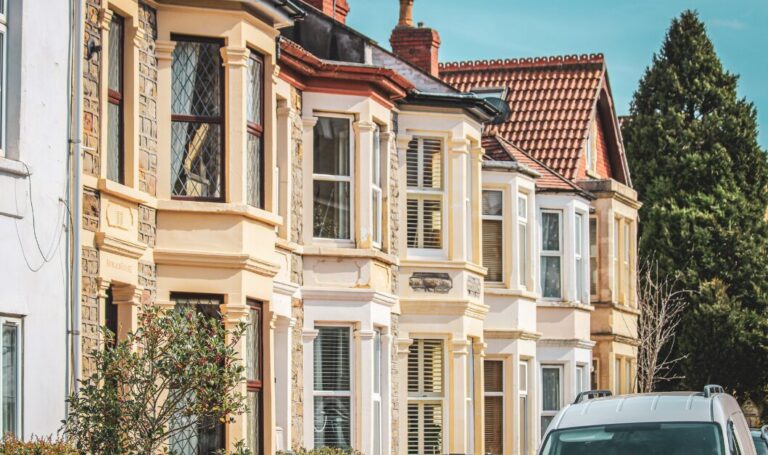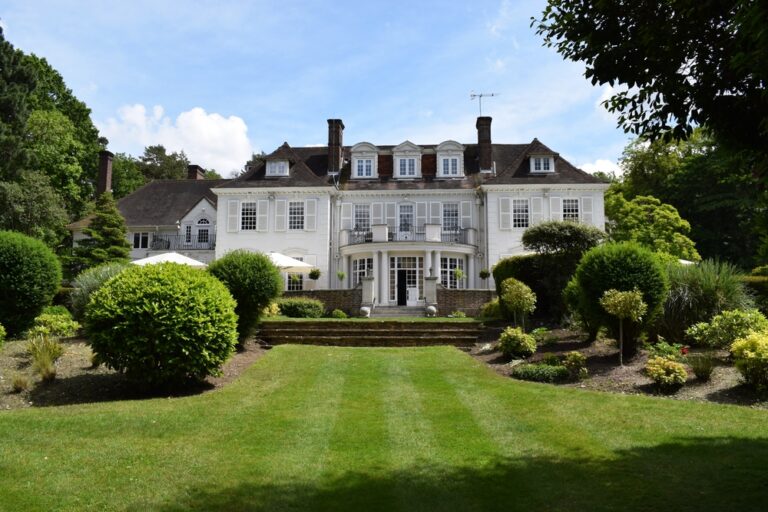Many first-time buyers in London probably feel there’s more chance of them winning the lottery than being able to buy a property in the capital.
London’s accelerated property price growth, though, has slowed over the past two-to-three years, opening the door to many first-time buyers keen to get that first foot on the property ladder.
There are also a number of new home-buying schemes up and running that could help you secure your first London home.
How much money do you need to buy a house in London?
The amount of money you’ll need to buy in London depends on a huge number of factors – not least, which area you want to buy in.
House prices by London borough
According to Rightmove’s latest price index, these are the average property prices in each of London’s 32 boroughs, alongside the amounts required as a 5% or 10% deposit.
| Borough | Avg property price | Deposit (5%) | Deposit (10%) |
| Croydon | £449,210 | £22,460 | £44,921 |
| Hackney | £659,315 | £32,965 | £65,931 |
| Redbridge | £473,177 | £23,658 | £47,317 |
| Bexley | £423,104 | £21,155 | £42,310 |
| Haringey | £626,062 | £31,303 | £62,606 |
| Hillingdon | £490,196 | £24,509 | £49,019 |
| Barking and Dagenham | £326,233 | £16,311 | £32,623 |
| Havering | £416,602 | £20,830 | £41,660 |
| Greenwich | £459,926 | £22,996 | £45,992 |
| Newham | £428,609 | £21,430 | £42,860 |
| Bromley | £547,380 | £27,369 | £54,738 |
| Richmond upon Thames | £846,628 | £42,331 | £84,662 |
| Waltham Forest | £506,476 | £25,323 | £50,647 |
| Harrow | £566,045 | £28,302 | £56,604 |
| Lewisham | £477,671 | £23,883 | £47,767 |
| Enfield | £459,743 | £22,987 | £45,974 |
| Ealing | £552,692 | £27,634 | £55,269 |
| Sutton | £475,671 | £23,783 | £47,567 |
| Barnet | £629,848 | £31,492 | £62,984 |
| Southwark | £625,709 | £31,285 | £62,570 |
| Hounslow | £536,174 | £26,808 | £53,617 |
| Merton | £622,409 | £31,120 | £62,240 |
| Brent | £575,339 | £28,767 | £57,533 |
| Kingston upon Thames | £622,463 | £31,123 | £62,246 |
| Hammersmith and Fulham | £894,647 | £44,732 | £89,464 |
| Islington | £728,754 | £36,437 | £72,875 |
| Kensington and Chelsea | £1,522,804 | £76,140 | £152,280 |
| Tower Hamlets | £564,977 | £28,248 | £56,497 |
| Wandsworth | £763,253 | £38,162 | £76,325 |
| Lambeth | £627,529 | £31,376 | £62,752 |
| Camden | £943,709 | £47,185 | £94,370 |
| Westminster | £1,320,412 | £66,020 | £132,041 |
What is the fastest way to get on the property ladder?
So, what can you do to get on the London property ladder?
Here’s a run-down of some of the best tips and buying options for first-time buyers in the capital…
1. Help to Buy
The Help to Buy scheme has been around since 2013 and has helped hundreds of thousands of buyers get on the property ladder.
The latest version of the Help to Buy scheme offers first-time buyers in London equity loans to help boost their deposits, while the Shared Ownership programme sees buyers purchase shares in a London home, while paying a reduced rent on the portion they don’t own.
Help to Buy in London: The equity loan scheme
Help to Buy equity loans are available to first-time buyers in London, covering 40% of a new-build property’s purchase price.
The buyer then requires only a 5% deposit, with a mortgage covering the other 55%.
The other key facts on equity loans are:
• The loan is interest free for the first five years and can be paid off at any time
• Equity loans track your property’s value, so if your home rises in value, your equity loan rises and if it falls, your loan decreases
Further reading
Everything you need to know about Help to Buy equity loans
Shared Ownership in London
The Shared Ownership scheme in London sees buyers purchase a share of a property and pay rent on the share they don’t own.
Because the buyer is only buying a portion of the property’s total value, the deposit they require is much lower – making it easier to get a foot on the property ladder.
The other key facts on Shared Ownership are:
• The rent payable on the share you don’t own is less than you’d pay to privately rent
• You can buy further shares in your property, usually purchasing to 100% ownership
• Because you’re buying a share of the property’s value, there’s often no stamp duty to pay on the initial purchase
Further reading
Everything you need to know about Shared Ownership
2. A 5% deposit mortgage
A mortgage where the buyer puts down a 5% deposit is also known as a 95% mortgage.
The impact of the coronavirus pandemic meant that many mortgage lenders removed their 5% deposit mortgages from the market – making it extremely difficult for first-time buyers to purchase a home.
In order to boost the number of 95% mortgages on offer from lenders, the government has launched its 95% mortgage guarantee scheme.
This means first-time buyers should have access to more low deposit mortgages, helping them on to the property ladder in London.
Further reading
Everything you need to know about the 95% mortgage guarantee scheme
3. Take advantage of the stamp duty holiday
The stamp duty ‘holiday’ has now been extended until June 30, 2021 – meaning more scope for first-time buyers to take advantage of the savings on offer. If you’re buying in London, the ‘holiday’ is potentially more helpful than elsewhere in the country, with prices in the capital higher than anywhere else in the UK.
Under the ‘holiday’, first-time buyers in England pay no stamp duty on the first £500,000 of a property’s purchase price until June 30.
From July 1, first-time buyers will be exempt from stamp duty on the first £300,000 up to a maximum purchase price of £500,000.
Further reading
How to make the most of the stamp duty ‘holiday’
4. Stop renting to help save a deposit
Of course, ‘stopping’ renting is often easier said than done as we all need somewhere to live.
But if you can remove rent from your monthly outgoings, saving a big enough deposit for a London property will be far easier.
According to Homelet, the average rent in London in March 2021 was £1,586 per month – a huge amount of money that could be pushed into your savings.
Moving back in with parents is often the best option, even if they do charge a small amount for housekeeping.
Of course, if your parents live a fair way from the city, this might not be an option – there’s little to be gained from replacing a hefty rent payment with increased travel costs.
5. Lower your rental costs
Another option could be house sharing, where rent is usually much cheaper on a room-by-room basis.
Of course, you’ll lose some space and privacy sharing with others, but house sharing can help build new friendships.
If you absolutely want to remain in your current rental property and have a spare room, you could ask your landlord if they would be willing to allow you to sub-let it. This would dramatically reduce your rental costs.
You could also consider relocating to a cheaper area of London to save money on rent.
You would need to be mindful of increased travel costs, but sometimes moving a couple of Underground stops further out can reduce your rent while also not increasing your commute costs too much.
6. Start saving on outgoings
How much do you pay for a takeaway coffee each morning before you get on the Tube?
£2.30? £2.80? £3.00?
If you add the highest of those numbers up based on five days per week commuting, over a year that’s almost £800 just on coffee.
Spending is one area where you are in total control and cutting out little things like coffee or a sandwich from the shop at lunchtime can save you big amounts of money.
If you run a car, too, consider if you really need it.
London’s public transport network means you can get pretty much anywhere in the city fairly easily, while trains out of the city head to all corners of the UK. Once you tot up how much you spend on fuel, insurance, road tax and maintenance or servicing, that’s a pretty large sum that can go straight into your savings for your first property.
7. Buy with a friend
This is becoming more common with Londoners desperate to get on the property ladder in the city.
Young single professionals without partners to buy with are increasingly purchasing property with close friends and sharing the property and the mortgage payments.
As with partners who break up, though, friendships can sometimes go awry, and this can cause problems when it comes to property.
So, if you are considering this route, do plenty of research and make sure both you and your friend protect your interests in the event of a fall-out.
Further reading…
Spring is a busy time for the London property market – and 2021 is no exception.
If you’re thinking of buying this spring, take a look at our London property market guide which outlines what to expect.







